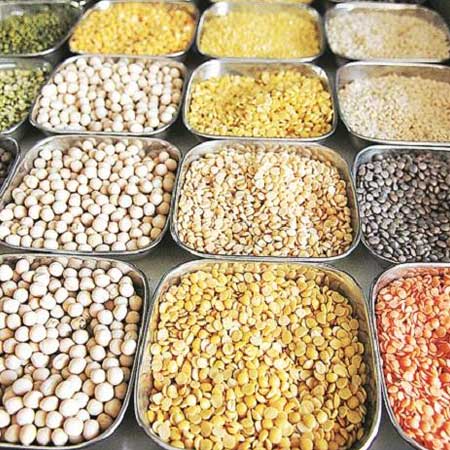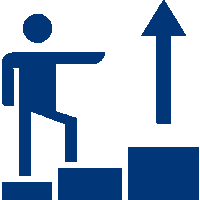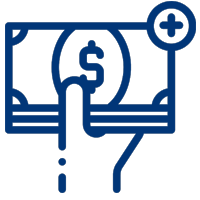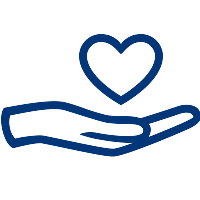The Ihsaas Model
Where we invest
At Ihsaas, we believe in focusing on supporting individuals and families through Zakaat or Sadaqa for which immediate support is needed so that, in time, they can be enabled to earn for themselves. Currently, our intervention areas include

Financial Support
Financial support for healthcare needs (across the primary, secondary and tertiary spectrum).
A large part of our work revolves around making systems for Karachi’s poor in accessing quality healthcare. A lot of this boils down to numbers (of patients, partners, months and funds). Through this, we have tried to remind ourself what those numbers are helping to achieve and to thank some extraordinary citizens of Karachi whose philanthropy, conscientiousness and time are benefiting individuals and nonprofits alike.

Ration Support
For the rations stream, the Trust has opted for a direct cash transfer model by reducing the time to disbursement through mobile payment solutions like Meezan Bank’s Cash over Counter service and Telenor’s EasyPaisa model. The decision on the amount to be disbursed for rations is tied to the number of people in the household thereby improving equitable distribution and curbing waste.
Based on extensive field expertise, we have created a matrix for cash disbursements for rations based on the number of dependents in the household
How we invest

Experience in the field has also taught us two valuable lessons
We always work with institutional partners as much as possible to ensure
- Provision of services to the end beneficiary
- Quality assurance for the services provided to the beneficiaries
- Eliminating the need for cash to change hands

All healthcare billings adopted by Ihsaas with any of our institutional partners are based on MoUs negotiated at market rates i.e. if a non-profit offers primary health services for 30 rupees per patient while their actual cost is 500 rupees, Ihsaas would pay the organization 500 rupees per patient. This will not only reduce the burden on the non-profit to raise the difference through donations but also give them an avenue to continue their operations sustainably.

By focusing on in-person needs assessment for all cases, the Ihsaas Trust is leading the way in matching philanthropy to avenues where it is truly needed. This is definitely an innovation in Pakistan because the traditional non-profit model is to create shariah-advisory boards that are incentivized to treat the maximum amount of donations as Zakaat thereby, increasing the funds available to non-profits for operations. The Ihsaas approach converts inflows to partners into non-zakaat contributions. This is important because non-zakaat contributions allow our partners to utilize the funds in any aspect of their operation that they choose e.g. payroll, capital expenditures or supplies.




